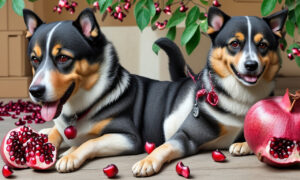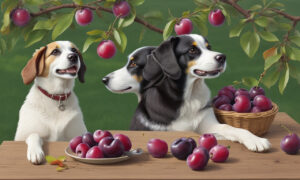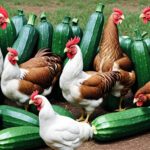When it comes to feeding backyard chickens, there’s always a flutter of curiosity about what treats are healthy for your feathered friends. Bananas are a common household fruit, and their widespread availability raises the question: can chickens eat bananas? This natural sweet treat may be a favorite among humans, but is it safe for chickens to peck on? In this comprehensive guide, we’ll thoroughly peck into the subject to provide you with all the information necessary to ensure the well-being of your backyard brood.
Understanding the dietary needs of chickens is crucial as it helps in maintaining their health and productivity. From nutritional values to potential hazards, this article will explore every nook of the topic. So, whether you’re a seasoned poultry farmer or a new chicken enthusiast, buckle up for an in-depth journey into the world of chickens and bananas.
Can Chickens Eat Bananas: Unpeeling the Facts
Nutritional Benefits of Bananas for Chickens
Bananas are packed with vitamins and minerals that can be beneficial for chickens. Here’s a breakdown of the nutritional advantages:
- Potassium: Essential for muscle function and overall health.
- Vitamins: Bananas are a good source of vitamins, including vitamin B6, vitamin C, and vitamin A.
- Fiber: Aids in digestion and helps keep a healthy digestive tract.
- Natural Sugars: Provide a quick energy boost.
In moderation, bananas can be a healthy snack that contributes to the diverse diet of your poultry. However, it’s important to understand the "in moderation" clause to prevent any dietary imbalance.
Potential Hazards of Feeding Bananas to Chickens
Overconsumption Risks
While bananas can offer nutritional benefits to chickens, overfeeding can lead to several health issues:
- Weight Gain: Excessive consumption of the fruit’s natural sugars can lead to obesity in chickens.
- Digestive Upsets: Too much fiber from bananas can cause digestive disturbances.
Banana Peels: A Controversial Treat
The peels of bananas are often questioned for their safety. Although they are not toxic, potential issues with banana peels include:
- Pesticides: If not thoroughly washed, peels can carry harmful chemicals.
- Digestibility: Peels are tough and fibrous, possibly leading to digestive problems if not chopped adequately.
How to Safely Include Bananas in Your Chicken’s Diet
The Right Portion is Key
Like any treat, bananas should only be given in small quantities. Here’s how to serve them:
- Cut the banana into small, bite-sized pieces.
- Provide bananas as a supplement to their regular feed, not a replacement.
Cleanliness Counts
Always ensure the bananas are clean and free from pesticides, especially if you decide to offer the peel. Washing the fruit thoroughly or choosing organic bananas are ways to minimize any risk of contamination.
Tips for Serving Bananas to Chickens
Creative Ways to Offer Bananas
- Mash them into their regular feed.
- Freeze small pieces for a refreshing summer treat.
- Mix with other safe fruits and vegetables for a varied snack.
Monitoring Your Flock
Always observe your chickens after introducing any new food item. Look out for signs of indigestion or changes in behavior that might indicate they’re not tolerating the treat well.
The Do’s and Don’ts of Banana Feeding
The Do’s:
- Do keep an eye on the amount of banana offered.
- Do remove uneaten pieces to prevent attracting pests.
- Do consult with a vet before making significant changes to their diet.
The Don’ts:
- Don’t make bananas a staple of their diet.
- Don’t offer bananas with added sugars or syrups.
- Don’t ignore signs of digestive issues after feeding bananas.
Frequently Asked Questions about Chickens and Bananas
Can Chickens Eat Banana Peels?
Banana peels are not toxic to chickens, but they should be given sparingly due to potential pesticide residue and tougher texture. Chop the peels finely to aid in digestion if you choose to offer them.
How Often Can Chickens Have Bananas?
Treats like bananas should make up no more than 10% of a chicken’s diet. Look to offer bananas once a week as a treat rather than a daily staple.
Are There Any Chickens That Shouldn’t Eat Bananas?
Chickens with preexisting health conditions such as obesity or digestive disorders should have a stricter diet, possibly excluding high-sugar treats like bananas. Consult with a veterinarian for personalized advice.
Sourcing Bananas: Organic vs. Standard Bananas
Understanding the Difference
Organic bananas are grown without synthetic fertilizers and pesticides, reducing the risk of chemical ingestion. Standard bananas may contain pesticide residues unless thoroughly washed.
Make an Informed Choice
Weighing the benefits of organic versus standard bananas comes down to a matter of preference and budget. However, organic bananas may offer an extra layer of safety for your chickens.
Tasty Treat or Fowl Faux Pas?
Bananas can be a delicious addition to a chicken’s diet, but moderation is key. By understanding the nutritional benefits and potential hazards, you can safely offer this fruit to your flock. Monitoring consumption and choosing organically grown bananas can alleviate most concerns associated with feeding bananas to chickens.
Remember, the dietary health of your chickens significantly relies on a well-balanced meal plan, and treats should only complement their primary diet. With careful consideration and responsible feeding practices, your chickens can enjoy the occasional banana bite without ruffling any feathers.
In a world where chickens clap their beaks for a varied menu, offer them the chance to peck at banana bites—but do so with the knowledge and caution that ensures their clucks remain happy and their health robust. Whether you’re feeding a single hen or an entire coop, remember that every treat from your hand weaves into the tapestry of their diet. Let bananas be a golden thread, not the whole fabric, and watch your feathered charges thrive.
Banana Bites for Beaks reflects the simplistic joy of sharing nature’s bounty with our avian companions. With this guide, you are now equipped to navigate the nuances of feeding bananas to chickens, ensuring that these sweet treats are safe and enjoyable for your beaked buddies. Happy feeding!






